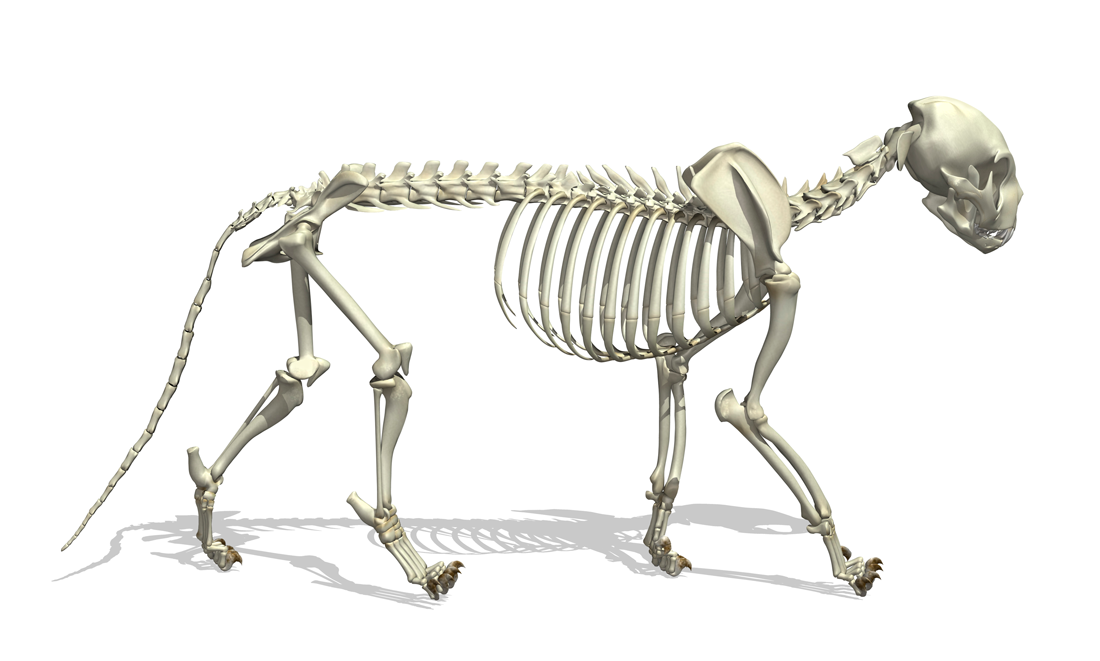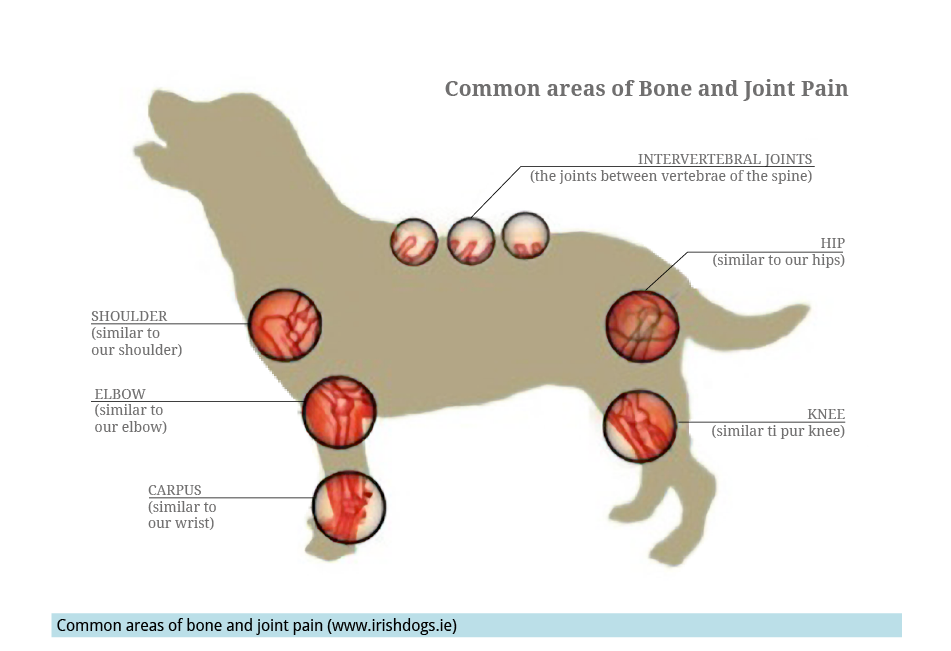
Osteoarthritis
Adipose-derived mesenchymal stem cell therapy as a promising alternative to anti-inflammatory drug treatment in dogs suffering from osteoarthritis

Osteoarthritis (OA) is a very common degenerative joint disease from which approximately 20% of middle-aged and older dogs will suffer in their life. It is a debilitating and painful disease which influences the dog’s movements and emotional wellbeing. The symptoms are caused by the formation of fissures, the loss of matrix, fibrillation and the degeneration of articular cartilage in the joint. It can affect any joint but occurs most commonly in the hip, knee and elbow. Up to now, the standard treatment for dogs with OA is non-steroidal anti-inflammatory drugs but the treatment often cannot lead to complete pain relief (1). Is there any alternative treatment leading to better results?
Adult mesenchymal stem cells (MSC) have been studied for many years. They are powerful multipotent cells able to self-renew and to differentiate into a variety of other cell types, such as osteoblasts, chondrocytes, myocytes and adipocytes. The cells play an important role in tissue repair within the body. Could the treatment of OA with MSCs lead to the complete cure of this disease?
During the last years, a lot of research effort is put into adult stem cell therapies which become more and more important and may represent a good therapeutic alternative in regenerative medicine (1).
One of the main advantages in using MSCs is their easy isolation from different tissue sources, such as the bone marrow, cord blood, adipose tissue and the fetal lung. Bone marrow- and adipose-derived MSCs (BM-MSCs, AD-MSCs) are the best characterized cells and are able to differentiate into adipo-, osteo-, and chondro-cytic cell lineages. However, AD-MSCs are the preferred cells in regenerative veterinary medicine because of their easy access and processing and their higher cell numbers compared to BM-MSCs. Obtaining the AD-MSCs for therapy includes harvesting the adipose tissue, isolating the stem cells and administering them back to the patient (2).
Several clinical studies have been published in order to demonstrate the effectiveness of AD-MSCs in the treatment of OA in dogs. The studies focus hereby on a single intraarticular injection with the main goal to replace the drug treatment with this cellular therapy.
The purpose of the randomized, double-blinded, multicenter, controlled trial conducted by Linda L. Black and colleagues was to evaluate the effectiveness of an AD-MSC treatment in dogs with lameness associated with OA of the coxofemoral joints. In this study, 21 dogs (14 females and 7 males), 1 to 11 years old who suffered from bilateral coxofemoral joint OA for a minimum of 6 months were enrolled. All dogs presented different OA symptoms, such as persistent lameness at walk and trot, pain on passive manipulation of the affected joints, stiffness and pain. Dogs who received anti-inflammatory drug therapy for at least 14 days before enrollment had to stay on treatment during all the study duration. The dogs were treated with either phosphate buffered saline (control group) or a suspension of viable cells (treatment group) prepared from the dog’s own fat tissue. The hip joints were injected at the midpoint of the proximal edge of the greater trochanter of the femur. The study was completed in 90 days. The results from this study showed that the stem cell group statistically significantly improved the clinical scores for lameness at walk and trot, pain on manipulation and pain-free range of motion at all evaluations after treatment. Besides, the study demonstrated an overall effect size of 1.34 which is similar to a large effect in orthopedics. In conclusion, less patient discomfort and a better functional ability has been obtained for patients with intraarticular administration of adipose-derived stem and regenerative cell therapy (3).
A similar clinical study was performed by the same group evaluating a single intraarticular injection of AD-MSCs in dogs with OA of the elbow joints. The study included 14 OA dogs. In contrary to the first study, all participating dogs were injected with AD-MSCs and the treatment effect was compared to baseline and not to a placebo group. The study results showed that the clinical outcomes could improve statistically significant. Hereby did the functional disability and lameness show the greatest improvements with 30 to 40%. After 180 study days, the standardized effect size for the composite improvement scores was 1.7 and 1.4 for the veterinarian and owner, respectively (4).
In conclusion from these two studies, it has been shown that AD-MSC treatment was not only effective in improving pain and lameness in OA dogs but also, with the expansion from 90 to 180 study days, the researchers demonstrated that the treatment effect was long-lasting. Dogs that were chosen for the studies suffered from chronic OA and therefore responded poorly to conventional therapies. The improvement of OA in these dogs under AD-MSC treatment could support the effectiveness of this therapy compared to conventional treatment.
Regarding the results from the different studies, AD-MSC treatment for dogs with osteoarthritis is promising and of great clinical use. It may potentially replace the anti-inflammatory drug therapy.
References:
1. A. Guercio, P. Di Marco, S. Casella, V. Cannella, L. Russotto, G. Purpari, S. Di Bella, and G. Piccione, Production of canine mesenchymal stem cells from adipose tissue and their application in dogs with chronic osteoarthritis of the humeroradial joints. Cell Biol Int, (2012) 36, 189-194.
2. M. Neupane, C. C. Chang, M. Kiupel, V. Yuzbasiyan-Gurkan. Isolation and characterization of canine adipose-derived mesenchymal stem cells. Tissue Eng Part A, (2008) 14 (6), 1007-15.
3. L. L. Black, J. Gaynor, D. Gahring, C. Adamas, D. Aron, S. Harman, D. A. Gingerich, R. Harman. Effect of adipose-derived mesenchymal stem and regenerative cells on lameness in dogs with chronic osteoarthritis of the coxofemoral joints: A randomized, double-blinded, multicenter, controlled trial, Veterinary Therapeutics, (2007) Vol. 8, No. 4.
4. L. L. Black, J. Gaynor, C. Adams, S. Dhupa, A. E. Sams, R. Taylor, S. Harman, D. A. Gingerich, and R. Harman. Effect of intraarticular injection of autologous adipose-derived mesenchymal stem and regenerative cells on clinical signs of chronic osteoarthritis of the elbow joint in dogs. Veterinary Therapeutics, (2008) Vol. 9, No. 3.




No Comments